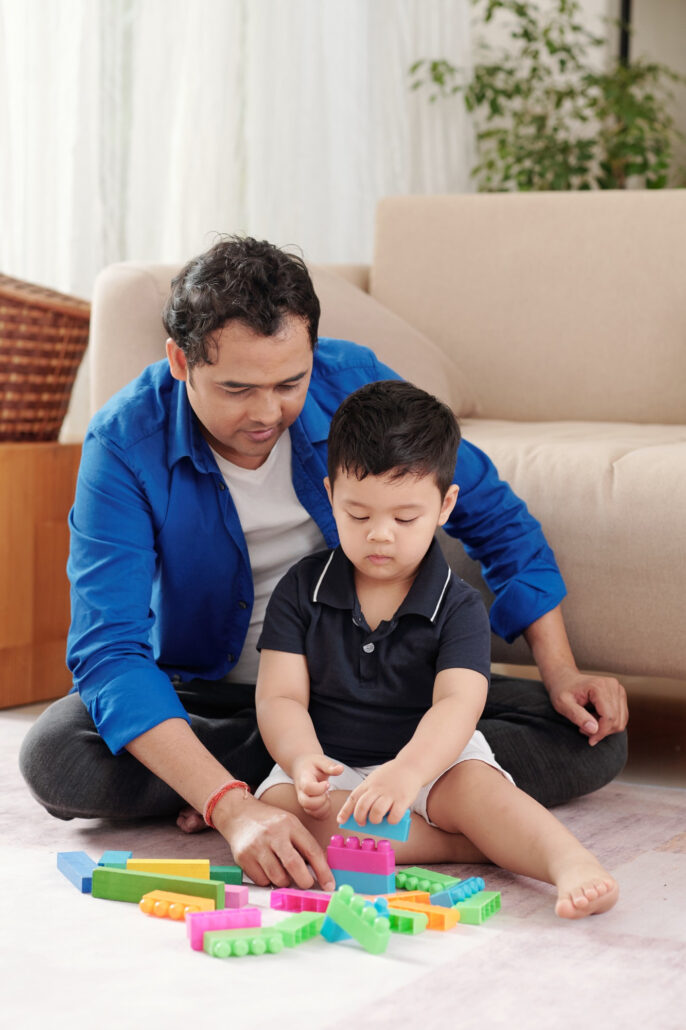Autism Spectrum Disorder Research Study
Researchers at the University of Fribourg, in collaboration with UConn, are partnering with parents of autistic children to see if and how bilingualism can be beneficial for the development of communication in children with, and without, ASD. Join our compensated study today!

Fast Facts
Monolingual children
3-11 years old
Diagnosed With Autism spectrum disorder
Compensation Provided
Conducted in connecticut
Study Background
The work of the Autism, Bilingualism, Cognitive and Communicative Development (ABCCD) group of the University of Fribourg aims to uncover if and how different levels of bilingualism can be beneficial for the development of cognition and communication in children with, and without, ASD. This project is an unprecedented large-scale, longitudinal study, involving various European collaborations as well as UConn. UConn’s current recruitment is focused on monolingual children here in the U.S.
If you have an autistic child 3-11 years old, your child may be eligible to participate in the research project, which will be carried out in your child’s home. Your family does not have to be bilingual to participate.
The ABCCD findings promise not only theoretical implications, thanks to uncovering new ways that experience shapes the mind, but also practical applications, thanks to shaping evidence-based language policies for the autistic community. Help advance research today and join our compensated study!

Study Background
Parents of children with ASD often fear that bilingualism may be too difficult for their children, but preliminary studies suggest that bilingualism can enhance areas specifically affected by the autistic condition. However, there is not yet enough research on bilingualism and autism to generalize the results to children across the spectrum.
The work of the Autism, Bilingualism, Cognitive and Communicative Development (ABCCD) group of the University of Fribourg aims to uncover if and how bilingualism can be beneficial for the development of cognition and communication in children with, and without, ASD. This project is an unprecedented large-scale, longitudinal study, involving various European collaborations, to shed light on skills that are negatively affected by ASD and may potentially be boosted by bilingualism.
If you have an autistic child 3-11 years old, your child may be eligible to participate in the research project, which will be carried out in your child’s home. Your family does not have to be bilingual to participate.
The ABCCD findings promise not only theoretical implications, thanks to uncovering new ways that experience shapes the mind, but also practical applications, thanks to shaping evidence-based language policies for the autistic community. Help advance research today and join our compensated study!
Additional Information
Your child may qualify for this study if they meet the following criteria.
Key Criteria:
- Ages 3-11 years old
- Diagnosis of autism
- Able to attend to tasks such as games on an iPad
- Able to understand simple language (short sentences)
- Monolingual
If your child participates, they will do several game-like activities, either in a direct conversation with an adult (who might ask them to tell a story, for example), on a computer, or on a touchscreen tablet (iPad).
There will be two groups of sessions, spaced about one year apart. Each of these will be composed of 2 or 3 sessions, about 2 hours each. Your child can take plenty of breaks during these 2-hour sessions, and the activities will be varied so that they don’t get bored or tired.
The study will be carried out in your child’s home.



